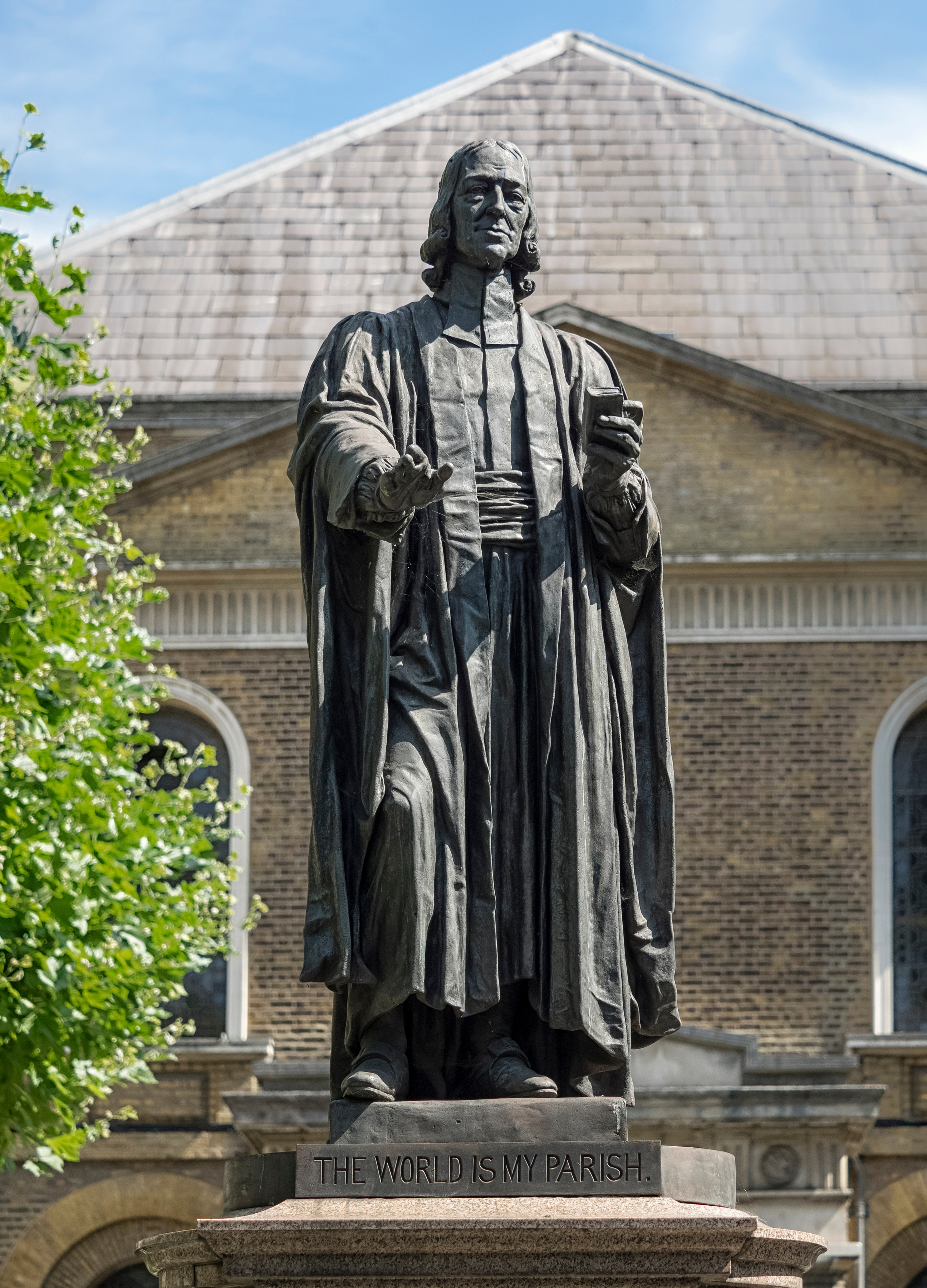On April 23, 1968, in Dallas, Texas, the Evangelical United Brethren Church and the Methodist Church united to create a new denomination, The United Methodist Church. On that day, these two churches, with similar backgrounds and theologies that had historically been separated largely by language differences, became one. Today, United Methodist congregations are found not only in the United States but also in many countries throughout the world.
The United Methodist Church is a church that celebrates its diversity, found in both rural and urban areas. Our members include people from all ethnic groups. Although our congregations vary in size, location, and cultural background, they share a common heritage as United Methodists.
 Statue of John Wesley in the forecourt of Wesley's Chapel, City Road By Chris Lawrence At its core, The United Methodist Church is a global faith movement that seeks to make disciples of Jesus Christ for the transformation of the world. This work is, first and foremost, relational. United Methodists are a connectional people, connected to one another in mission and service. Comprised of more than 12 million members in 131 Annual Conferences throughout Africa, Asia, Europe and the United States. The United Methodist Church is present in 136 countries, serving in mission with 677 missionaries, 125,000 volunteers-in-mission, and 550 refugee and relief workers. The United Methodist Church operates 52 hospitals and healthcare facilities, 92 colleges and universities, 13 theological schools, and 9 pre-collegiate schools. The generosity of United Methodists offers the world $6.3 billion annually in missional outreach.
Statue of John Wesley in the forecourt of Wesley's Chapel, City Road By Chris Lawrence At its core, The United Methodist Church is a global faith movement that seeks to make disciples of Jesus Christ for the transformation of the world. This work is, first and foremost, relational. United Methodists are a connectional people, connected to one another in mission and service. Comprised of more than 12 million members in 131 Annual Conferences throughout Africa, Asia, Europe and the United States. The United Methodist Church is present in 136 countries, serving in mission with 677 missionaries, 125,000 volunteers-in-mission, and 550 refugee and relief workers. The United Methodist Church operates 52 hospitals and healthcare facilities, 92 colleges and universities, 13 theological schools, and 9 pre-collegiate schools. The generosity of United Methodists offers the world $6.3 billion annually in missional outreach.
The United Methodist Church shares a common heritage with other Christians, believing in a triune God; faith in the mystery of salvation through Jesus Christ; and the celebration of the sacraments of Baptism and Holy Communion. United Methodists believe in the Holy Bible, both the Old and New Testaments, and we read and interpret Scripture through the lenses of tradition, reason, and experience. United Methodists believe that God's grace is open to all and therefore practice "open Communion," meaning that anyone may participate in receiving Communion. We believe that salvation is an open gift from God, accepted by individuals according to their own free will. The United Methodist Church is a "big tent" theologically, providing space for rich theological discourse and, at times, painful disagreements.
Like many other Christian groups, United Methodists also affirm the beliefs expressed in the Apostles' Creed, which include:
-
The belief in one God, who is the Creator and sustainer of the universe.
-
The belief in the Trinity, that there is one God in three persons: the Father, the Son, and the Holy Spirit.
-
The belief in the divinity of Jesus Christ, the Son of God, who is fully human and fully divine."
John Wesley, the founder of the Methodist movement, taught that we pursue our faith in community and action with others. We practice a social holiness. We insist that personal salvation always involves Christian mission and service to the world. The United Methodist Church has a long history of action and advocacy for social justice.
United Methodists are active in their communities and in the world through a variety of ways, including:
-
Participating in local mission projects and service initiatives
-
Supporting global mission efforts through the United Methodist Committee on Relief (UMCOR) and other mission organizations
-
Advocating for social justice and working to address issues such as poverty, hunger, and inequality
-
Providing educational and vocational training opportunities
-
Offering counseling, support groups, and other forms of pastoral care
-
Creating and supporting community development programs
